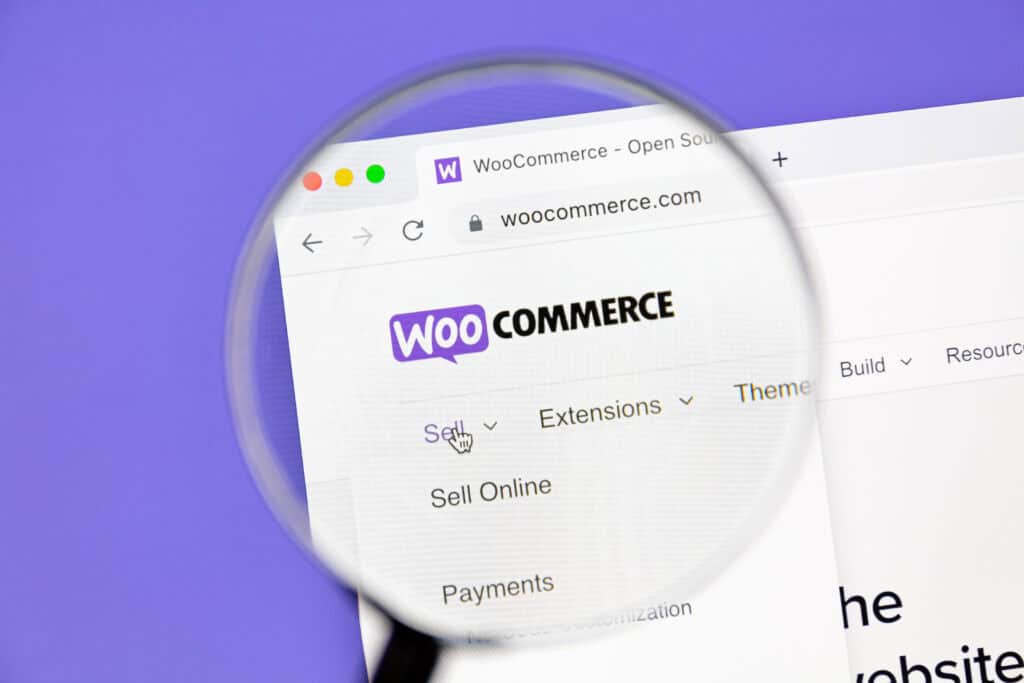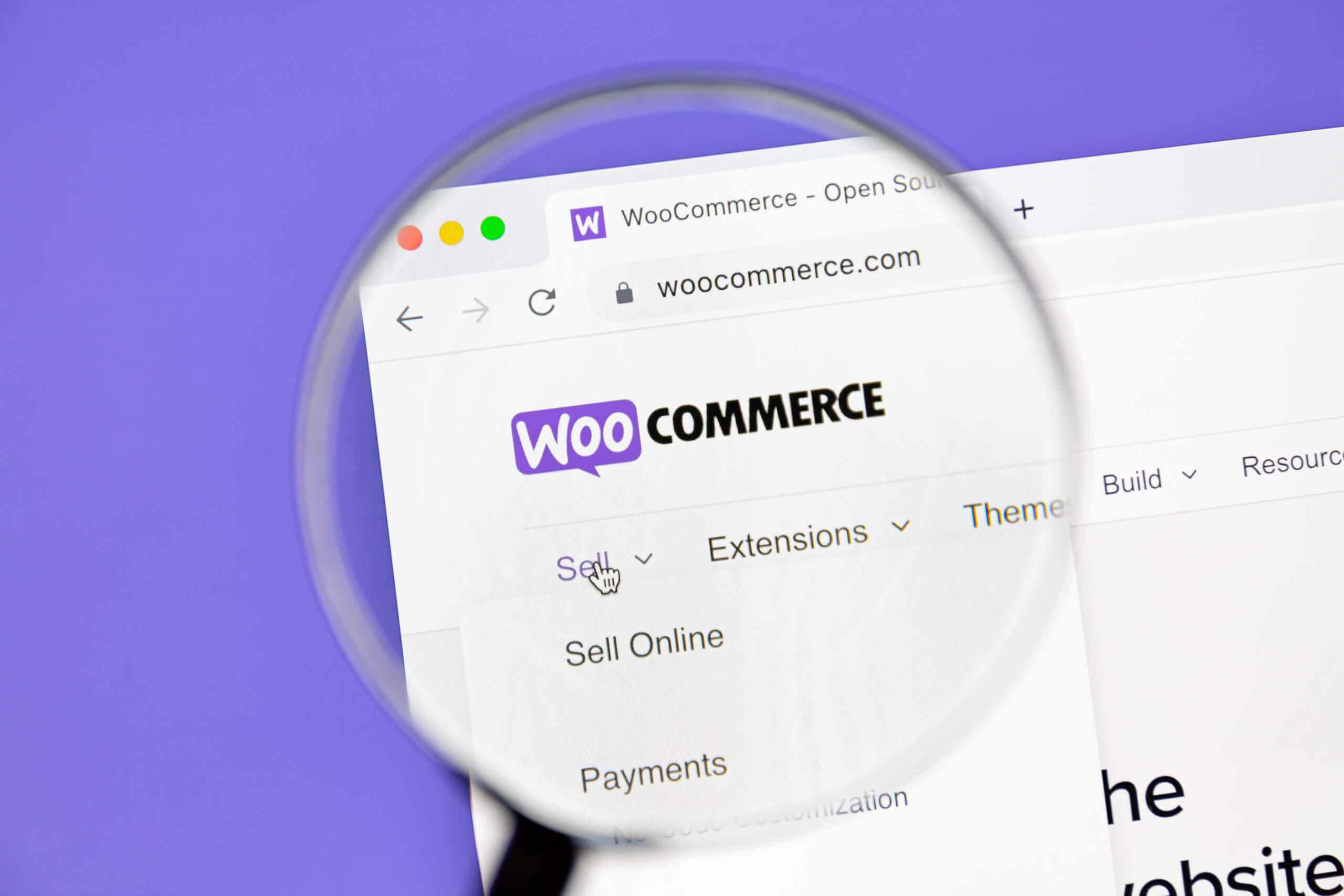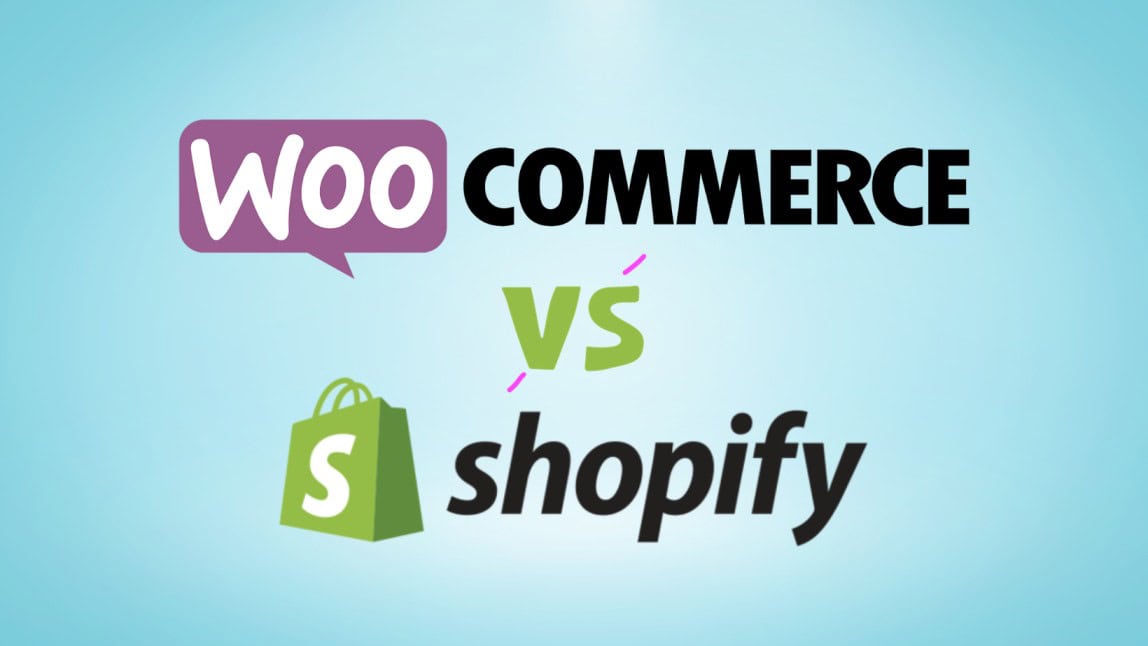
Choosing the Right Ecommerce Platform for Your Online Store, Woocommerce vs other options
Launching an online store starts with one of the most important decisions you’ll make; choosing the right ecommerce platform. This is where the questions woocommerce vs other platforms comes to play.
With so many options available, finding the best fit for your business can feel challenging.
While Shopify and WooCommerce are two of the most popular choices, other platforms such as Magento, BigCommerce, and Squarespace also offer distinctive strengths.
Let’s compare WooCommerce with other leading ecommerce platforms. We’ll examining key factors like ease of use, cost, customisation, and scalability. This will help you feel more informed on which solution is best suited to your needs.
What is WooCommerce?
WooCommerce is a free WordPress plugin that allows you to change a standard website into a functional online store.
WooCommerce is known for its flexibility and customisation options. It allows you to design and manage your stores exactly how you want. As it’s open-source (free), WooCommerce offers full control over everything from design and functionality to hosting and scalability. This makes it a popular choice for businesses that want complete ownership and creative freedom over their e-storefront.
What is Shopify?
Shopify, on the other hand, is a dedicated ecommerce platform that provides everything you need to build, launch, and manage an online store.
It’s known for its user-friendly interface, reliable hosting, and extensive app marketplace. This means it is easier to use without technical expertise. Shopify simplifies the entire ecommerce process. From setting up your storefront to processing payments. This makes it a great choice for entrepreneurs and small businesses looking for a streamlined, hassle-free solution.
What is Magento?
Magento (now known as Adobe Commerce) is a robust, open-source ecommerce platform. It is designed for businesses that need advanced functionality and scalability. It offers extensive customisation options, allowing developers to build highly tailored shopping experiences. Magento is particularly suited for medium to large enterprises with complex product catalogues, high traffic, or unique business requirements. However, its powerful capabilities come with a steeper learning curve. There are also higher development costs, making it better suited for companies with technical resources or dedicated web teams.
What is Bigcommerce?
BigCommerce is a fully hosted ecommerce platform designed to help businesses easily build, manage, and grow their online stores. It combines powerful built-in features with a user-friendly interface that requires little technical expertise. BigCommerce offers more flexibility than most hosted platforms while still handling the heavy lifting of hosting, security, and maintenance. It’s a great choice for growing businesses that want enterprise-level capabilities without the complexity of managing a self-hosted solution.
What is Squarespace?
Squarespace is an all-in-one website builder that makes it easy to create visually stunning online stores.
Known for its beautiful templates and intuitive drag-and-drop editor, Squarespace is ideal for small businesses, creatives, and entrepreneurs who prioritise design and simplicity.
It doesn’t offer the same level of customisation or advanced ecommerce tools but it does excel in providing an elegant, user-friendly experiences. It’s perfect if you want to start selling online quickly without needing technical skills.
WooCommerce vs. Other platforms: An Overview
WooCommerce is self-hosted, so it appeals to businesses that like control, scalability, and the ability to tailor every aspect of their store. Because of this, it does require more technical knowledge to manage effectively.
Shopify’s user-friendly interface, professional themes, and reliable support make it ideal for beginners or business owners who prefer a hassle-free setup and maintenance experience. It is not as easy to scale and cannot be tailored as easily to the specifics of your business.
Magento (now Adobe Commerce) is also an open-source platform built for large-scale or highly customised stores. It offers exceptional flexibility and advanced features but demands significant technical expertise and development resources to set up and maintain.
BigCommerce strikes a balance between flexibility and ease of use. It’s a hosted platform that delivers robust built-in features, including SEO tools and multi-channel integrations, without requiring self-hosting or complex configuration. This makes it well-suited for growing businesses.
Squarespace, meanwhile, focuses on beautiful design and simplicity. Its intuitive drag-and-drop interface makes it ideal for small businesses, creatives, and entrepreneurs who want an elegant, professional-looking store without needing technical skills or extensive setup.
Ease of Use: WooCommerce vs. Other platforms
WooCommerce: Flexible, but Takes Time to Master
WooCommerce integrates seamlessly with WordPress, which means if you’re familiar with WordPress, you’ll likely find WooCommerce easy to navigate. However, setting up a store can be complex, especially for beginners. You’ll need to handle hosting, security, and backups.
While it offers great flexibility, this can sometimes come at the cost of ease of use.
Shopify: User-Friendly Out of the Box
Shopify is designed for ease of use, making it ideal for those who want to get an online store up and running quickly. The platform handles hosting and security, so you don’t have to worry about those technical aspects. It offers a simple drag-and-drop interface for customising your store, which is perfect for beginners.
Magento: Powerful but Complex
Magento (also known as Adobe Commerce) is built for larger businesses that need advanced functionality and custom solutions. It offers unmatched flexibility, allowing developers to create tailored shopping experiences for complex product catalogues or high-volume stores. However, this power comes with a steeper learning curve; Magento typically requires technical expertise or a development team to set up, manage, and maintain effectively.
BigCommerce: Feature-Rich and Scalable
BigCommerce provides a great balance between usability and advanced capabilities. As a fully hosted platform, it handles hosting, security, and maintenance for you, while offering powerful built-in tools like SEO optimisation, analytics, and multi-channel selling. It’s ideal for growing businesses that want more control than Shopify offers, without the technical complexity of WooCommerce or Magento.
Squarespace: Simple, Stylish, and Beginner-Friendly
Squarespace is best known for its beautiful templates and easy-to-use design tools. It’s an excellent choice for small businesses, creatives, or entrepreneurs who value simplicity and aesthetics. While it doesn’t offer the same level of customisation or advanced ecommerce functionality as other platforms, it’s a good option for those who want to set up a sleek, professional store quickly with minimal technical effort.
Cost Considerations: WooCommerce vs. Other platforms
WooCommerce: Variable Costs
WooCommerce itself is free, but there are costs associated with hosting, domain registration, and any premium plugins or themes you might want to use.
These costs can add up, but they also provide flexibility, allowing you to build a store that fits your specific needs and budget.
Shopify: Fixed Pricing Tiers
Shopify offers several pricing tiers, starting with a basic plan and going up to advanced options.
Each plan includes hosting and security, but you may incur additional costs if you use premium apps or themes. Shopify’s straightforward pricing structure can make budgeting easier, but it might be more expensive in the long run compared to a self-hosted WooCommerce store.
Magento: High Investment for High Performance
Magento is open-source and free to download, but running a Magento store can be costly.
You’ll need to budget for web hosting, security, and ongoing development, as well as potential costs for extensions and custom features.
For larger businesses, these investments can pay off through greater control and scalability, but for smaller stores, the setup and maintenance costs can be significant.
BigCommerce: All-In-One Pricing
BigCommerce operates on a subscription model, with tiered pricing plans that include hosting, security, and most core ecommerce features.
While it’s generally more affordable than Magento, its plans can become costly as your sales volume grows, since higher revenue can move you into a higher pricing tier.
However, the platform’s robust built-in tools can help offset the need for many paid apps or add-ons, keeping costs predictable.
Squarespace: Affordable and Transparent
Squarespace offers simple, all-inclusive pricing plans that cover hosting, security, and design tools.
It’s one of the most cost-effective options for small businesses or creators, as you don’t need to worry about third-party hosting or maintenance costs.
However, its ecommerce features are more limited than those of other platforms, so while the upfront cost is lower, it may not scale as well for larger or more complex stores.
Customisation and Design: WooCommerce vs. Other platforms
WooCommerce: Unlimited Customisation
One of WooCommerce’s biggest strengths is its customisation capabilities.
With thousands of themes and plugins available, you can design a store that truly reflects your brand.
If you have coding skills, the possibilities are virtually limitless, allowing you to tweak every aspect of your site.
Shopify: Extensive, Yet Limited
Shopify offers a wide range of themes and apps to customise your store, but it’s not as flexible as WooCommerce when it comes to making unique changes. While you can access HTML and CSS, the platform’s proprietary language, Liquid, may require some learning.
However, for most users, Shopify’s customisation options are more than enough.
Magento: Complete Control for Developers
Magento stands out for its unparalleled customisation potential. As an open-source platform, it gives developers full access to the codebase, allowing complete control over design, functionality, and integrations.
This makes it ideal for large or complex stores that need highly tailored solutions.
However, the level of customisation available also means that technical expertise is essential, and most businesses will need a dedicated developer or team to fully leverage Magento’s capabilities.
BigCommerce: Built-In Flexibility
BigCommerce offers a strong balance between ease of use and flexibility.
While not open-source, it provides robust built-in features and supports custom code editing, as well as integrations with a wide range of third-party apps.
Users can modify themes and extend functionality without heavy reliance on plugins, making it a solid middle ground for businesses that want flexibility without the technical demands of WooCommerce or Magento.
Squarespace: Design-Focused Customisation
Squarespace is best known for its beautiful, professionally designed templates that make it easy to build a visually appealing store.
Its drag-and-drop editor allows for quick adjustments to layouts, fonts, and colours, no coding required.
However, Squarespace’s customisation options are more design-focused and limited when it comes to advanced functionality or integrations. It’s perfect for users who prioritise aesthetics and simplicity over deep technical control.
Scalability: WooCommerce vs. Other platforms
WooCommerce: Grow at Your Own Pace
WooCommerce is highly scalable, making it a great choice for businesses that anticipate growth. Since it’s self-hosted, you can upgrade your hosting plan as your traffic increases. However, with scalability comes the responsibility of ensuring your site runs smoothly as you grow.
Shopify: Built-In Scalability
Shopify is built to handle high volumes of traffic, and its infrastructure ensures that your store remains fast and secure as you grow.
While you can scale your business easily on Shopify, higher traffic may necessitate moving to a more expensive plan to accommodate increased needs.
Magento: Enterprise-Level Scalability
Magento is built with scalability in mind, making it ideal for large and rapidly growing businesses.
It can handle extensive product catalogues, heavy traffic, and complex operations without compromising performance, provided you have the right hosting environment and technical support. However, maintaining a scalable Magento store can be resource-intensive, often requiring ongoing optimisation and developer involvement to keep everything running efficiently.
BigCommerce: Seamless Growth Without the Hassle
BigCommerce is designed to scale effortlessly as your business expands. Because it’s a hosted platform, it automatically manages hosting, performance, and security, allowing you to focus on growth rather than infrastructure.
Its built-in tools support multi-channel selling and high-volume operations, making it a strong choice for growing mid-sized to large businesses that want scalability without technical headaches.
Squarespace: Best for Small to Medium Stores
Squarespace performs well for small to medium-sized businesses, offering reliable performance and stability.
However, it has limited scalability compared to other ecommerce platforms.
While it’s perfect for smaller stores or creative brands with modest growth goals, it may struggle to meet the needs of larger retailers that require more advanced features, integrations, or processing power.
Which Platform Is Right for Your Business?
By this point we know there are many varients when looking at woocommerce vs other options on the market.
Choosing the best ecommerce platform comes down to your business size, goals, and technical comfort level.
- WooCommerce is ideal for businesses that want complete control and flexibility. It’s perfect if you already use WordPress and don’t mind managing hosting or learning a few technical skills along the way.
- Shopify suits entrepreneurs and small to medium businesses that want to launch quickly and scale easily without worrying about technical setup or maintenance.
- Magento (Adobe Commerce) is best for large enterprises or brands with complex needs that require advanced customisation and have the resources for ongoing development.
- BigCommerce is great for growing businesses that want powerful, built-in tools and scalability, but prefer a hosted solution that takes care of the technical side.
- Squarespace works beautifully for creatives, small businesses, and startups that value design and simplicity over technical complexity.
Each platform has its own pros and cons.
The key is finding the one that aligns with how you work, what you sell, and how you plan to grow.
How an Agency Can Help
Whether your business runs on Shopify, WooCommerce, Magento, BigCommerce, Squarespace, or another platform, partnering with a professional web agency can make all the difference.
These platforms are designed to be user-friendly but building a site that performs, converts, and grows with your business requires a combination of strategy, design expertise, and technical precision.
At Page, we don’t just “set up” your website, we help you create a seamless customer journey, from browsing to checkout.
We ensure your site not only looks beautiful but also loads fast, ranks well, and delivers measurable results.
Beyond the launch, we provide ongoing support, updates, and optimisation to keep your store secure and aligned with evolving industry trends.
By entrusting your website build to a professional team, you save time, avoid costly mistakes, and gain a long-term partner invested in your success.
Conclusion: WooCommerce vs. Other platforms, Which Platform Is Right for You?
Choosing the right ecommerce platform depends on your specific needs and goals.
If you value flexibility and have the technical skills to manage a self-hosted site, WooCommerce is an excellent choice. It’s perfect for businesses that want full control over their online store and are willing to handle the technical aspects.
Shopify, on the other hand, is ideal for those who want a hassle-free, all-in-one solution with excellent support. It’s perfect for beginners or businesses that prefer a straightforward setup with strong scalability.
Other platforms like Magento, BigCommerce, and Squarespace each have their strengths, catering to different business sizes and requirements. Evaluate your business needs, budget, and technical capabilities to make the best decision for your online store.
In the end, whether you choose WooCommerce, Shopify, or another platform, the key is to select the one that aligns best with your business strategy and growth plans.








